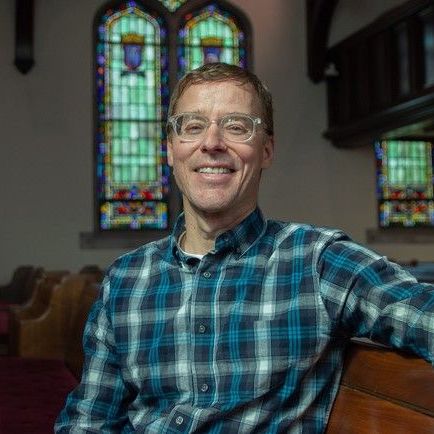On my own journey, I’m so thankful that I encountered believers who gave me the space and language and freedom to bite at God’s silence, to ask hard questions, to wonder. I’ve learned that God daily invites us into the wrestling ring with him. His people, Israel, had a name that meant “wrestles with God” after all.
Last week I had a cup of tea with a high schooler who identifies as an atheist. He is a kind, thoughtful young man and his honest story reminded me, among other things, of just how important it is to doubt God.
Don’t get me wrong: it’s not like we should try to doubt God or that there is some merit in doubt in and of itself. But having the space and language and freedom to bring our questions and uncertainty to God is hugely important.
In short, does doubt have to equal lack of faith? Not at all! My friend’s story is a reminder of this.
Sitting with uncertainty
He grew up in a strong Christian home, he told me, with loving Christian parents. He and his family regularly attended church and he was a regular and glad participant in youth group through the years. But there was this one thing: over time he had some doubts about the Christian faith. And the Bible. What about people who don’t hear about Jesus? And what about some of the seeming conflicts in the Bible? And why such antipathy towards science within the church?
As we sipped our tea, he told me of his attempts to share those doubts with others – a friend in church, a youth leader, a pastor, his parents. And each time he did this, he was met with a similar response: doubting of any sort is a sin and we should just have faith – just believe what you’re taught in church without any hesitation.
Only here’s the thing: doubts are a natural part of the journey of faith. In the Psalms, David yells at God and bites at God’s silence. In Psalm 28:1, David shouts, “Do not turn a deaf ear to me!” Job and Habakkuk lob their questions right at God – and they don’t always get an answer. Gideon and Zechariah talk back to angels. Peter rebukes Jesus. It’s hard to find folks in the Bible who don’t have their moments of uncertainty.
This is where these stories tie back to my young friend. All these folks I’ve mentioned do the same thing with their doubts: they bring them to God. They had the space and language and freedom to bring God their doubts and fears and questions. And that’s all my new friend had looked for over the last few years. Instead, according to his telling of the story, he was told repeatedly he shouldn’t have any doubts or fears or questions.
Just believe.
Pray harder.
Have faith.
Room for questions
We as humans are curious and searching beings. And my friend’s questions, when left unasked, grew and took on a life of their own. Instead of lobbing his doubts right into the face of a living God who can handle such honest wrestling, he got lost in them. When faced with the option to pretend he didn’t have questions or to turn his back on a community that had branded such questions as a personal failure, he chose the latter.
On my own journey, I’m so thankful that I encountered believers who gave me the space and language and freedom to bite at God’s silence, to ask hard questions, to wonder. I’ve learned that God daily invites us into the wrestling ring with him. His people, Israel, had a name that meant “wrestles with God” after all.
Our next conversation
And so that’s what I’m trying to do for my friend, provide some space and language and freedom to express his doubts. Perhaps, over time, he will realize that our living God is not afraid of grey areas. Perhaps all those stories about uncertain believers before him will stir within his soul and remind him that Jesus encouraged questions and curiosity and honesty. And Jesus only seemed to get frustrated when people got quiet and disengaged.
I’m excited to hear more about his doubts and fears and questions. I’m excited to share more of mine with him. To be a living testimony – not of a shiny, happy Christian who never doubts, but of an honest and imperfect person of faith who’s not afraid to look God in the face and let him have it. Just like David and Job and Habakkuk and Peter – and all the rest of the gang.
I’ve emailed my friend asking him if he’d like to share another cup of tea with me. I wonder if he will.
